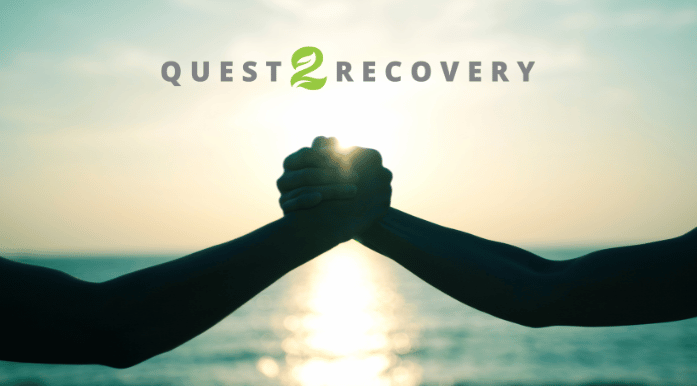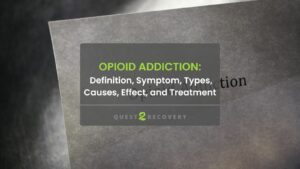Loneliness is a universal human emotion, but for those battling addiction, it can be a particularly challenging adversary. The journey of addiction recovery is often fraught with emotional and psychological hurdles, and loneliness can amplify these challenges. It’s not just about the physical act of abstaining from substances; it’s also about rebuilding one’s life, mending relationships, and finding a new sense of purpose. In this journey, the shadow of loneliness can loom large, making the path to recovery even more daunting. Recognizing and addressing this emotion is crucial, as it plays a pivotal role in both the onset of addiction and the recovery process.

The Role of Loneliness in Addiction
Loneliness can be a silent trigger, pushing individuals towards substance abuse as a way to cope with their feelings of isolation and emptiness. When human connections are lacking, substances can offer a temporary escape, a fleeting feeling of euphoria, or a momentary sense of belonging. However, this is a dangerous illusion.
As individuals become more dependent on substances to fill the void of loneliness, they often find themselves in a vicious cycle. The very substances they turn to for comfort can lead to further isolation. Friends and family may distance themselves, either because they don’t understand the addiction or because they’ve been hurt by the individual’s actions. As a result, the person battling addiction may feel even more isolated, driving them deeper into their dependency.
Moreover, the stigma associated with addiction can exacerbate feelings of loneliness. Many individuals fear judgment or misunderstanding from their peers, leading them to hide their struggles and further alienate themselves.
The Impact of Loneliness on Recovery
Embarking on the path to recovery is a commendable and courageous decision. However, the journey is not without its challenges. Loneliness, if not addressed, can become a significant obstacle in this journey.
When individuals feel isolated, they may struggle to find the motivation and strength to continue their recovery. The emotional weight of loneliness can lead to feelings of hopelessness and despair, making the recovery process seem insurmountable. Additionally, without a support system, individuals may lack accountability, increasing the risk of relapse.
Furthermore, loneliness can magnify other emotional challenges associated with recovery, such as guilt, shame, or anxiety. Without a network of support, these emotions can become overwhelming, potentially leading individuals back to the very substances they are trying to avoid.

Strategies to Combat Loneliness in Recovery
Overcoming loneliness requires proactive effort, but with the right strategies, it’s entirely achievable. Here are some effective ways to combat loneliness during the recovery process:
Building a Support System
Having a strong support network is paramount. This could be in the form of understanding family members, close friends, or mentors. They can offer encouragement, lend a listening ear, and provide the necessary accountability during challenging times.
Therapy and Counseling
Professional therapy can help individuals address the root causes of their loneliness. Group therapy, in particular, can be beneficial as it allows individuals to connect with others who are going through similar experiences, fostering a sense of community and understanding.
Engaging in Social Activities
Taking up new hobbies, joining clubs, or participating in group activities can help individuals rebuild their social connections. Whether it’s a book club, a dance class, or a local sports team, these activities provide opportunities to meet new people and form meaningful relationships.
Adopting a Pet
Pets offer unconditional love and companionship. Whether it’s a dog, cat, or even a fish, having a pet can provide a sense of purpose and reduce feelings of isolation.
Embracing Technology
In today’s digital age, staying connected is easier than ever. Virtual support groups, online communities, and even simple video calls with loved ones can help bridge the gap of physical distance and combat feelings of loneliness.
The Role of Quest 2 Recovery in Combating Loneliness
At Quest 2 Recovery, we understand the profound impact loneliness can have on an individual’s journey to sobriety. That’s why we’ve tailored our programs to not only address the physical aspects of addiction but also the emotional and psychological challenges that accompany it.
Comprehensive Support Services
Our dedicated team of professionals is committed to providing a holistic approach to recovery. From individual counseling to group therapy sessions, we ensure that every individual feels heard, understood, and supported.
Community Building
We foster a sense of community among our clients. Through group activities, workshops, and communal living arrangements, individuals at Quest 2 Recovery are encouraged to build connections, share their experiences, and support one another.
Family Involvement
Recognizing the importance of a strong support system, we actively involve families in the recovery process. Through family therapy and educational sessions, we help mend broken relationships and build a foundation for lasting recovery.
Success Stories
Many of our alumni have triumphed over loneliness with the help of our comprehensive programs. Their testimonials serve as a beacon of hope, illustrating that with the right support and resources, overcoming loneliness and achieving lasting recovery is possible.

Navigating the Path Forward: The Power of Connection in Recovery
Loneliness, while a formidable challenge, is not insurmountable. With awareness, proactive efforts, and the right support, individuals can overcome feelings of isolation and pave the way for a successful and fulfilling recovery. At Quest 2 Recovery, we are committed to being that pillar of support, guiding individuals every step of the way, ensuring they never feel alone in their journey to sobriety.









